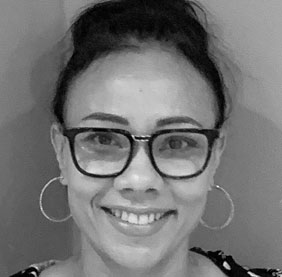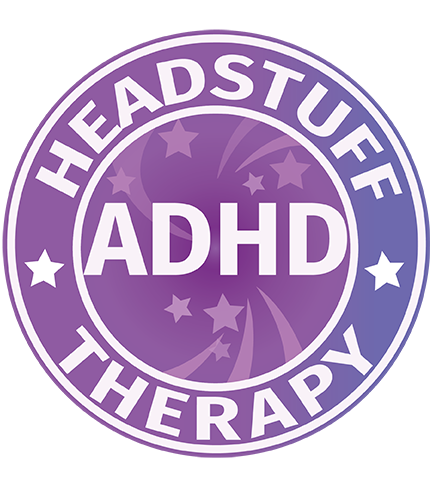
JUSTINE
DIAGNOSED ADHD
BACP ACCREDITED COUNSELLOR
CHILD & YOUTH COUNSELLOR
EMDR THERAPIST
QUALIFIED FAMILY MEDIATOR
PARENTING PRACTITIONER
Justine sees clients face-to-face in Chiswick, West London W4
She sees clients face-to-face in Loudwater, between High Wycombe and Beaconsfield HP10
She also sees clients online
Justine is a BACP accredited Person-Centred Counsellor who has worked with Children and Young People for over 20 years. Justine has a BA (Hons) in Early Years Education as well as a Diploma in Person Centred Therapy and a Diploma in Counselling Teenagers.
Justine is also qualified and experienced in providing Parenting Support and Family Mediation. Justine is very happy supporting parents of both Inattentive and Combined ADHD boys and girls of all ages and is a qualified Parent Practitioner.
Justine’s teenage years were spent fighting one injustice after another! However, the biggest injustice was the lack of self-care she offered herself. Justine struggled through her adolescent years the most – nobody suspecting or suggesting to her for one moment that she might have ADHD. Despite Justine getting distracted very easily and being a constant fidget, she believes being a girl with undiagnosed ADHD meant she got missed. She was always impatient and impulsive and definitely showed signs of what she now believes was Oppositional Defiant Disorder especially in her teens
Through anger Justine found her safe space, her comfort and her protector. An angry adolescent is someone to be avoided and so Justine was able to hide her inability to learn or to settle long enough to learn, listen and remember. She can see that now but unfortunately Justine nor anyone else could see that beneath the anger was fear and loss.
Justine was soon one of those Young People who are classed as ‘hard to reach’ or ‘disruptive’ and was quickly moved on rather than supported. She learnt very early to adapt, work harder to learn and never let her guard down. Weakness was something she couldn’t afford to show and so the power behind her anger propelled her for many more years into adulthood.
Through study and much exploration and personal development Justine is finally in a place of confidence, rather than fear. Justine always knew that her brain had many different ways of thinking and learnt to ignore the constant internal dialogue and over-thinking that create self-doubt. Justine became the master of managing what she finally knows now to be her ADHD brain. She now understands why she’s constantly on the go, always needing to be busy, can be impatient and impulsive and has a constant internal dialogue.
Justine firmly believes her being someone who works hard, always thinking outside the box and honing intuitive thinking that others have never tapped into, are the benefits of her own ADHD. Her passionate beliefs stem from a place of disadvantage and when Justine sees her younger self in her clients, she is passionate about helping them find solutions. She provides empathy and a real understanding based on her own experiences. She can therefore offer them the reassurance that with the right support they too can thrive.
Justine offers counselling support that is rooted in respect, empathy and mutual ADHD experience. Justine is also able to offer Parent Support, Mediation, as well as helping develop mindfulness.
Justine qualified in EMDR in 2024. Eye movement desensitization and reprocessing (EMDR) therapy is a mental health treatment technique. This method involves moving your eyes a specific way while you process traumatic memories. EMDR’s goal is to help you heal from trauma or other distressing life experiences.
EMDR can help people with a wide range of mental health conditions. Adolescents and adults of all ages can benefit from EMDR.
EMDR therapy doesn’t require talking in detail about a distressing issue. EMDR instead focuses on changing the emotions, thoughts or behaviours that result from a distressing experience (trauma). This allows your brain to resume a natural healing process. While many people use the words “l’mind’ and ‘brain’ when referring to the same thing, they’re actually different. Your brain is an organ of your body. Your mind is the collection of thoughts, memories, beliefs and experiences that make you who you are
EMDR can treat anxiety, panic disorders, depression, eating disorders and OCD among others.
Qualifications
- EMDR Trauma Practitioner
- Diploma in Person Centered Therapy
- Institute for Arts in Therapy and Education
- Diploma in Counselling Teenagers
- Triple P Parenting Programme
- FRIENDS Resilience Programme
- Penn Resilience Programme
- Trauma Treatment (Rewind)
- Qualified Family Mediator – National Family Mediation Society
- Child Advocacy

JUSTINE
DIAGNOSED ADHD
BACP ACCREDITED COUNSELLOR
EMDR THERAPIST
CHILD & YOUTH COUNSELLOR
QUALIFIED FAMILY MEDIATOR
PARENTING PRACTITIONER
Justine sees clients face-to-face in Chiswick, West London W4
She sees clients face-to-face in Loudwater, between High Wycombe and Beaconsfield HP10
She also sees clients online
Justine is a BACP accredited Person-Centred Counsellor who has worked with Children and Young People for over 20 years. Justine has a BA (Hons) in Early Years Education as well as a Diploma in Person Centred Therapy and a Diploma in Counselling Teenagers.
Justine is also qualified and experienced in providing Parenting Support and Family Mediation. Justine is very happy supporting parents of both Inattentive and Combined ADHD boys and girls of all ages and is a qualified Parent Practitioner.
Justine’s teenage years were spent fighting one injustice after another! However, the biggest injustice was the lack of self-care she offered herself. Justine struggled through her adolescent years the most – nobody suspecting or suggesting to her for one moment that she might have ADHD. Despite Justine getting distracted very easily and being a constant fidget, she believes being a girl with undiagnosed ADHD meant she got missed. She was always impatient and impulsive and definitely showed signs of what she now believes was Oppositional Defiant Disorder especially in her teens
Through anger Justine found her safe space, her comfort and her protector. An angry adolescent is someone to be avoided and so Justine was able to hide her inability to learn or to settle long enough to learn, listen and remember. She can see that now but unfortunately Justine nor anyone else could see that beneath the anger was fear and loss.
Justine was soon one of those Young People who are classed as ‘hard to reach’ or ‘disruptive’ and was quickly moved on rather than supported. She learnt very early to adapt, work harder to learn and never let her guard down. Weakness was something she couldn’t afford to show and so the power behind her anger propelled her for many more years into adulthood.
Through study and much exploration and personal development Justine is finally in a place of confidence, rather than fear. Justine always knew that her brain had many different ways of thinking and learnt to ignore the constant internal dialogue and over-thinking that create self-doubt. Justine became the master of managing what she finally knows now to be her ADHD brain. She now understands why she’s constantly on the go, always needing to be busy, can be impatient and impulsive and has a constant internal dialogue.
Justine firmly believes her being someone who works hard, always thinking outside the box and honing intuitive thinking that others have never tapped into, are the benefits of her own ADHD. Her passionate beliefs stem from a place of disadvantage and when Justine sees her younger self in her clients, she is passionate about helping them find solutions. She provides empathy and a real understanding based on her own experiences. She can therefore offer them the reassurance that with the right support they too can thrive.
Justine offers counselling support that is rooted in respect, empathy and mutual ADHD experience. Justine is also able to offer Parent Support, Mediation, as well as helping develop mindfulness.
Justine qualified in EMDR in 2024. Eye movement desensitization and reprocessing (EMDR) therapy is a mental health treatment technique. This method involves moving your eyes a specific way while you process traumatic memories. EMDR’s goal is to help you heal from trauma or other distressing life experiences.
EMDR can help people with a wide range of mental health conditions. Adolescents and adults of all ages can benefit from EMDR.
EMDR therapy doesn’t require talking in detail about a distressing issue. EMDR instead focuses on changing the emotions, thoughts or behaviours that result from a distressing experience (trauma). This allows your brain to resume a natural healing process. While many people use the words “l’mind’ and ‘brain’ when referring to the same thing, they’re actually different. Your brain is an organ of your body. Your mind is the collection of thoughts, memories, beliefs and experiences that make you who you are
EMDR can treat anxiety, panic disorders, depression, eating disorders and OCD among others.
Qualifications
- EMDR Trauma Practitioner
- Diploma in Person Centered Therapy
- Institute for Arts in Therapy and Education
- Diploma in Counselling Teenagers
- Triple P Parenting Programme
- FRIENDS Resilience Programme
- Penn Resilience Programme
- Trauma Treatment (Rewind)
- Qualified Family Mediator – National Family Mediation Society
- Child Advocacy
